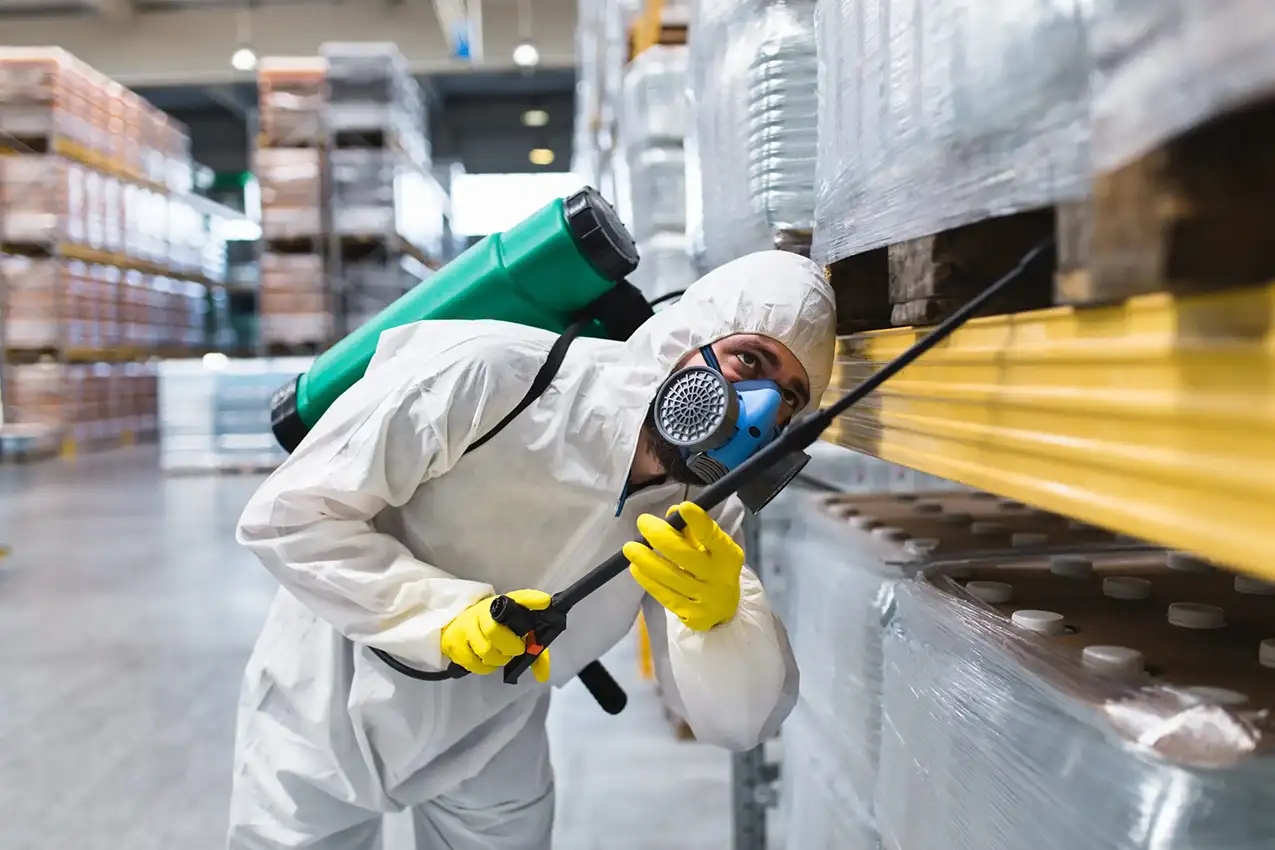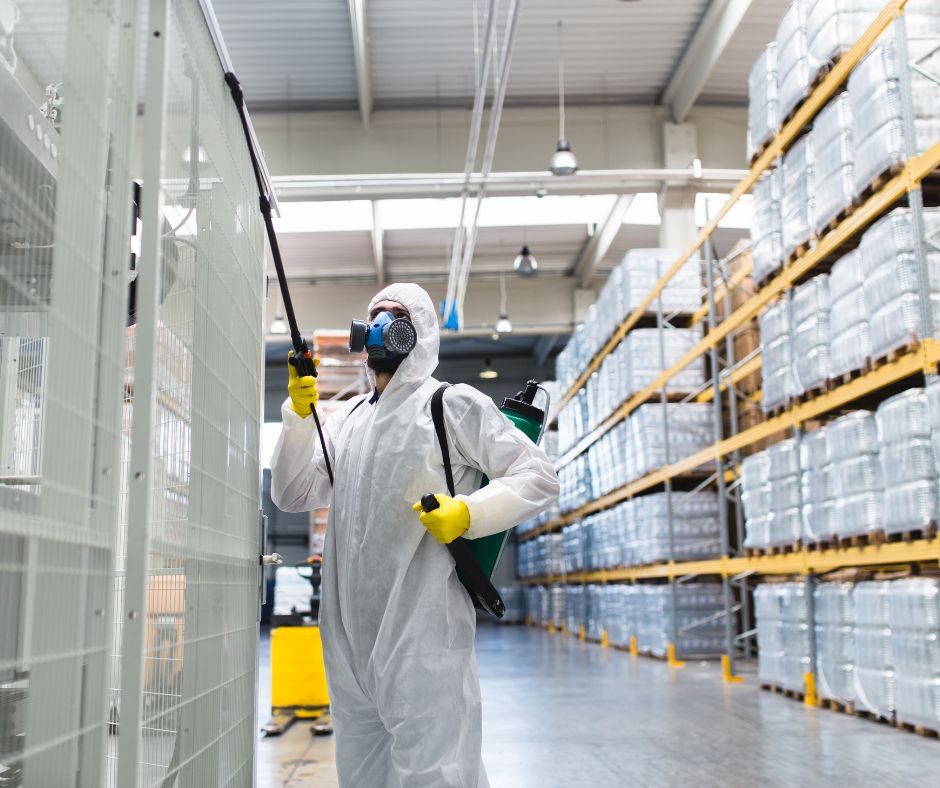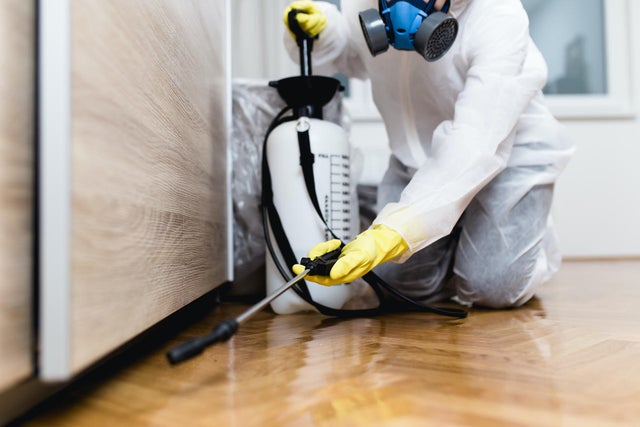Expert Bed Bug Exterminator Port Charlotte for a Peaceful Night’s Rest
Reveal the Significance of Bug Control in Keeping a Healthy Atmosphere and Treatment Methods

The Function of Bugs in Environments
Insects, commonly watched entirely as hassles, play a complex role in ecosystems that is crucial for maintaining environmental equilibrium. They add significantly to different ecological processes, including pollination, nutrition cycling, and bug control. Several insect types, such as butterflies and , are crucial pollinators for a large range of plants, which in turn supports biodiversity and food production.
Furthermore, insects offer as prey for many predators, creating an important web link in food internet. This interdependence makes certain the survival of various species and assists control populaces within ecosystems (Termite treatment Port Charlotte). Decomposer parasites, such as certain beetles and fungi, are crucial in breaking down organic issue, therefore enriching dirt and helping with vitamins and mineral recycling.
Conversely, while bugs can be advantageous, their overpopulation or invasion right into non-native environments might interrupt these ecological functions. This complexity emphasizes the importance of recognizing parasite dynamics, as efficient bug monitoring techniques should take into consideration both their eco-friendly duties and prospective influence on human tasks. Stabilizing pest existence while reducing harm is crucial for preserving the honesty of environments and ensuring agricultural efficiency.
Wellness Risks Related To Insects
The visibility of insects in various settings expands past their eco-friendly roles, as they also present considerable wellness dangers to animals and people. Many insects, including bloodsuckers, insects, and rodents, are providers of diseases that can have severe health implications. Rats are recognized to transmit hantavirus and leptospirosis, both of which can lead to severe respiratory system and renal problems, respectively.
Bugs such as ticks and mosquitoes are well known for spreading vector-borne illness like jungle fever, dengue fever, and Lyme illness. These health problems can lead to high morbidity and mortality prices, especially in susceptible populations. Furthermore, insects like bedbugs and roaches can worsen allergic reactions and asthma, contributing to respiratory system issues in individuals, particularly those with pre-existing problems.
In addition, the visibility of bugs can bring about psychological stress and pain, affecting general wellness. Contamination of food and surfaces by pest droppings and stays can result in foodborne ailments, highlighting the significance of preserving hygienic conditions. Understanding the health dangers linked with bugs is vital in recognizing the need of effective pest administration techniques to secure human and animal health and wellness.

Advantages of Efficient Parasite Control
Reliable parasite control is important for preserving a healthy and safe atmosphere, as it regularly alleviates the numerous risks related to pest infestations. One of the key advantages of effective insect administration is the decrease of health risks. Bugs such as roaches, rodents, and insects are vectors for conditions that can impact both humans and family pets. By controlling these populaces, the probability of illness transmission is considerably lowered.
In addition, effective insect control safeguards building and structures from damages. Lots of bugs, like termites and woodworker ants, can trigger considerable architectural damage that may call for costly repair work. By proactively handling these companies, property owners and invasions can safeguard their financial investments.
An additional considerable benefit is the enhancement of total lifestyle. A pest-free atmosphere contributes to psychological health and decreases anxiety related to problems. Efficient parasite control cultivates a more secure environment for animals and youngsters, making sure that homes continue to be sanctuaries totally free from her comment is here damaging chemicals and disease-causing organisms.
Usual Bug Control Strategies

In the world of insect administration, various methods are used to battle invasions properly. These methods can be extensively categorized into 3 main methods: cultural, mechanical, and chemical controls.
Cultural control involves changing methods to lower pest facility, reproduction, and survival. This might consist of crop rotation, proper cleanliness, and habitat adjustment, which jointly create a setting much less for pest proliferation.
Mechanical control uses physical techniques to get rid of insects (Termite treatment Port Charlotte). Techniques such as vacuums, barriers, and catches are generally utilized to directly eliminate insects from a location. This method is especially effective for handling rats and bugs without making use of hazardous chemicals
Chemical control includes the application of chemicals to manage pests. These compounds can be classified into herbicides, fungicides, and insecticides, each targeting certain sorts of bugs. It is crucial to utilize these chemicals carefully, adhering to safety standards and guidelines to decrease potential damage to non-target varieties and the environment.
Each insect control method has its advantages and limitations, and usually, an incorporated approach integrating numerous techniques generates the most effective cause preserving a pest-free atmosphere.
Sustainable Bug Administration Practices
Sustainable pest administration methods encompass a variety of strategies designed to decrease environmental effect while properly controlling pest populaces. These methods focus on making use of eco-friendly approaches over chemical pesticides, thus lowering the threat of injury to non-target types, consisting of useful bugs, wild animals, and people.
Integrated Bug Monitoring (IPM) is a keystone of lasting practices, incorporating biological, social, mechanical, and chemical strategies to manage additional hints bugs. Organic control includes introducing natural killers or parasites to subdue insect populaces. Social practices, such as crop rotation and polyculture, disrupt pest life cycles and improve environment durability.
Mechanical techniques, such as barriers or traps, can successfully prevent insect access without chemical treatment. In addition, maintaining healthy environments through proper dirt management, plant wellness, and biodiversity can normally reduce parasite concerns.
Education and learning and recognition are essential parts, equipping individuals and areas to identify insect dangers early and implement safety nets. Termite treatment Port Charlotte. By cultivating a holistic method that balances parasite control with environmental integrity, lasting insect monitoring techniques not just secure structures and plants however also add to a healthier setting for future generations
Final Thought

Comprehending the health risks associated with pests is vital in recognizing the requirement of reliable insect management techniques to protect human and animal health.
Reliable bug control is vital for preserving a safe and healthy environment, as it constantly alleviates the various risks associated with insect invasions.Integrated Pest Monitoring (IPM) is a foundation of sustainable practices, integrating organic, cultural, mechanical, and chemical methods to take care of bugs. By understanding the duty of pests, acknowledging involved wellness dangers, and using diverse therapy strategies, a sustainable strategy to pest administration can be accomplished. Integrated Insect Monitoring (IPM) emphasizes an that site alternative methodology that minimizes damage to advantageous microorganisms while successfully regulating insect populaces.